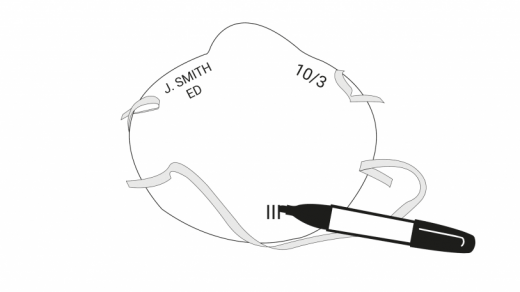This DIY kit turns an Ikea box into a mask decontamination unit for hospitals on the brink
Hospitals still don’t have enough masks for the nurses and doctors on the front lines of the coronavirus crisis—and in the U.S., at least 5,400 healthcare workers have been infected and at least 40 have died. N95 masks aren’t designed to be reusable, but many hospitals are now faced with no other choice. In New York City, nurses have reported being told to use the same mask for five shifts in a row.
A new DIY kit from a Dutch design studio called the Decontamination Toolkit, made from a basic set of parts including a storage box from Ikea and a UV-C light, at a cost of around $55-$75, is designed to quickly give hospitals, along with other key locations such as nursing homes and grocery stores, an option to try to decontaminate masks so they can be used repeatedly.
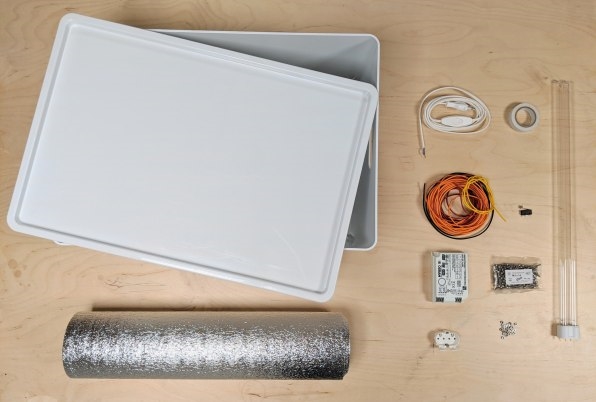
“The Decontamination Toolkit is really the result of taking a step back, which is paradoxical in such critical times: We prioritized trying to understand what the real needs are from people on the front line, beyond the stories that surfaced to the top of people’s social media,” says Andrew Spitz, director of Frolic Studio, the firm that created the new kit. The studio has previously worked on projects ranging from an automated sterilization tool for gynecologists to a kit of parts that turn everyday objects such as lamps into smart devices. “From putting the call out, we interviewed many medical healthcare workers from around the world and went through a thorough design research process to come up with this context to focus on and its supporting insights.”
Even in cases where health systems seem to have enough masks, the situation can quickly change. “As an example, last week the Netherlands were going through 100,000 to 200,000 masks per day, with a runway of fewer than 10 days at the time we interviewed doctors,” he says. “They were waiting for a huge order of 1.3 million N95 masks that when it was finally delivered, 600,000 had to be recalled due to not meeting the quality standards.”
The new kit relies on UV-C light, a type of short-wavelength ultraviolet light that breaks apart genetic material in germs. (It’s also harmful for humans, meaning that it can only be used very carefully—in this case, the box blocks exposure to the light.) With a handful of other parts, including reflective material to line the Ikea box and wiring, it’s possible to build with simple tools. The kit also includes 3D-printed parts for those who have access to a 3D printer.
But it’s intended only as a last resort. Masks will eventually degrade after decontamination and multiple uses; the strength of different masks varies by manufacturer, although some studies have suggested that masks can be reused one to three times with no degradation, and potentially even dozens of times. Frolic’s designers recommend carefully inspecting masks for signs of wear, since physical degradation should be visible before the masks lose the ability to filter well. While it’s not something that should happen in standard practice, in a pandemic where workers are already reusing masks or are working without masks, it could be helpful.
A German lab tested a prototype of the kit on masks that were contaminated with a virus similar to the new coronavirus and found that the system reduced the virus more than 100,000 times within six minutes; the kit recommends a roughly 12-minute cycle, and if people use different materials or a different UV-C light, they can use a calculator on Frolic’s website to determine the correct cycle time. The team is also testing the kit with this specific coronavirus.
While the designers are building a few of the kits themselves to distribute locally, they chose to make the design open source to reach as many people as possible. “Our hope is that FabLabs and people that are good at making things can ‘sponsor’ those in need,” Spitz says.
Other organizations are working on other approaches for decontamination. Michigan State University researchers, for example, are currently seeking FDA approval for a new method of baking masks in commercial ovens. The FDA also granted emergency-use authorization for decontamination to a company that makes equipment that sterilizes masks with vaporized hydrogen peroxide.
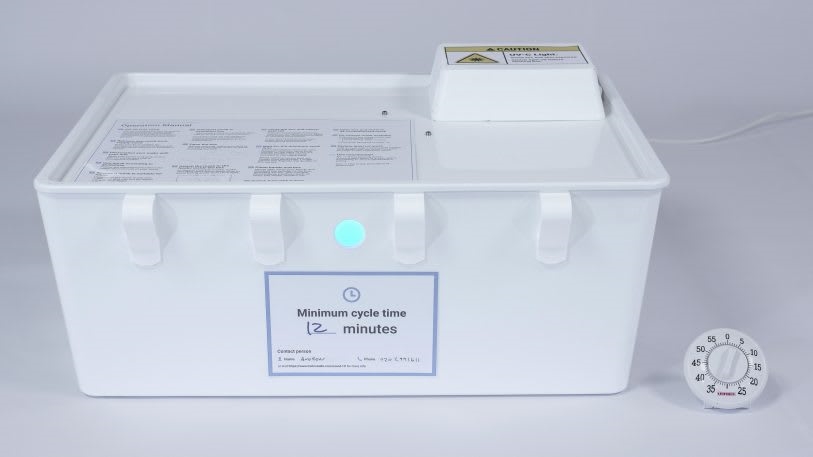
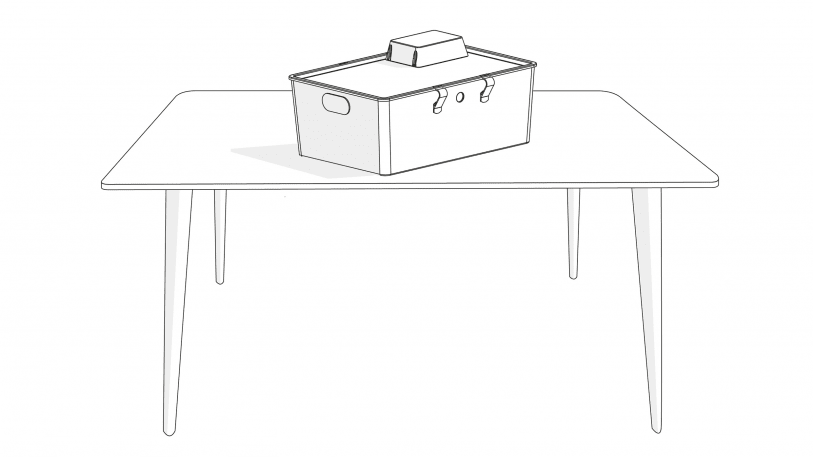
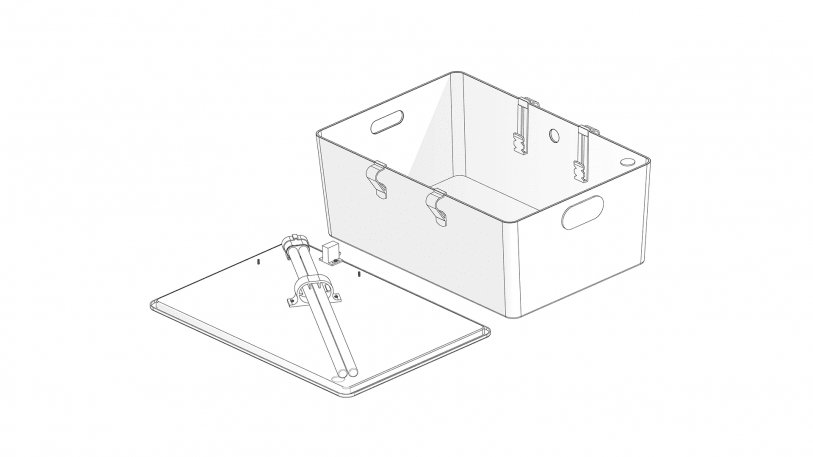
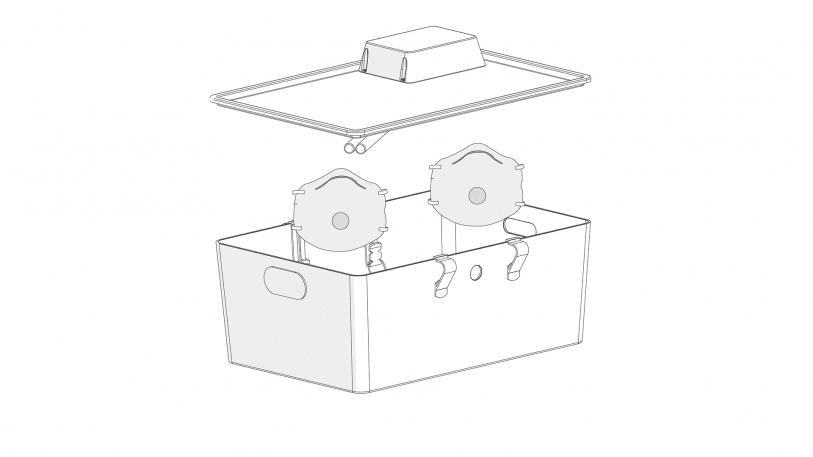
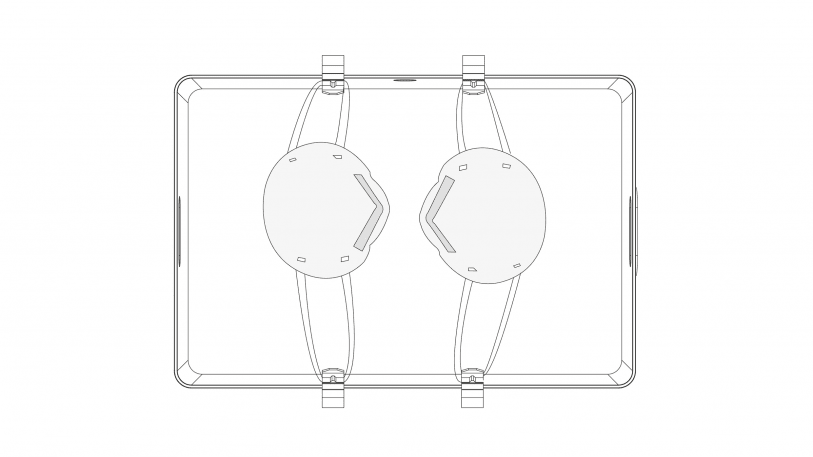
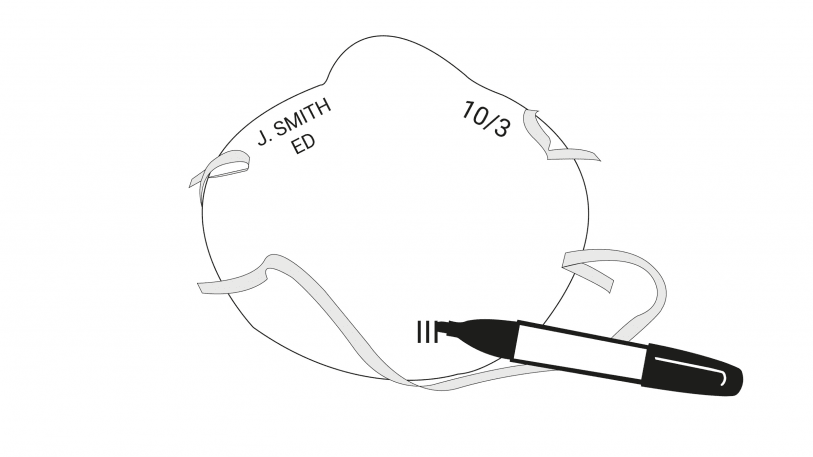
(13)

